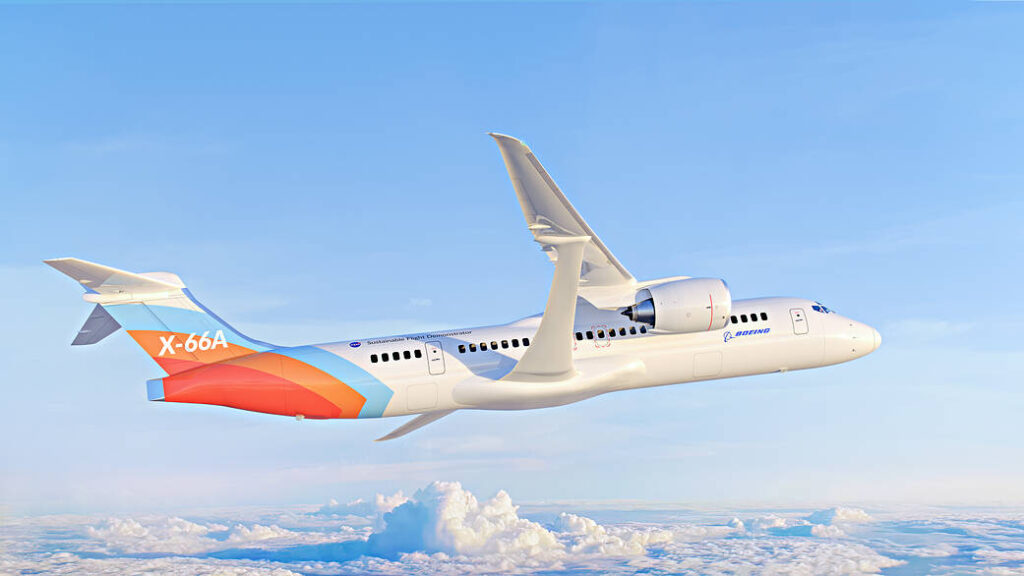
Boeing announced this week that it selected RTX to collaborate on the X-66A flight demonstrator. (Photo: Boeing)
NASA’s Sustainable Flight National Partnership focuses on technological developments to reduce commercial aviation’s CO2 emissions. The partnership includes the X-66A Sustainable Flight Demonstrator project.
“Boeing’s X-66A program is focused on developing the Transonic Truss-Braced Wing (TTBW) concept, which could enable significant improvements in fuel efficiency and reduced emissions for next-generation single-aisle aircraft,” according to the release from RTX.
Boeing announced this week that it selected RTX to collaborate on the X-66A flight demonstrator. Pratt & Whitney and Collins Aerospace—two of RTX’s business units—will provide engines, nacelles, and engine accessories, and will support ground and flight testing. The testing is expected to kick off in 2028.
Geoff Hunt, SVP of Engineering & Technology at Pratt & Whitney, commented, “We’ll work with Boeing to apply GTF engines to the X-66A and help demonstrate the potential of its pioneering truss-braced wing design.”
The GTF engine, which entered into service in 2016, can improve fuel efficiency by as much as 20%. The engines also reduce noise emissions significantly.

(Photo: Pratt & Whitney)
The nacelles that Collins will provide to support the X-66A program aid in controlling airflow, reducing noise, safeguarding the engine, and facilitating thrust reversal. Additionally, Collins provides the air turbine starters, electronic controls, heat exchangers, and other control system components for Pratt & Whitney’s GTF engines.
Other sustainable aviation technologies that RTX is working on include “engine readiness for unblended 100% SAF, hybrid-electric propulsion, and hydrogen fuel,” according to the company.